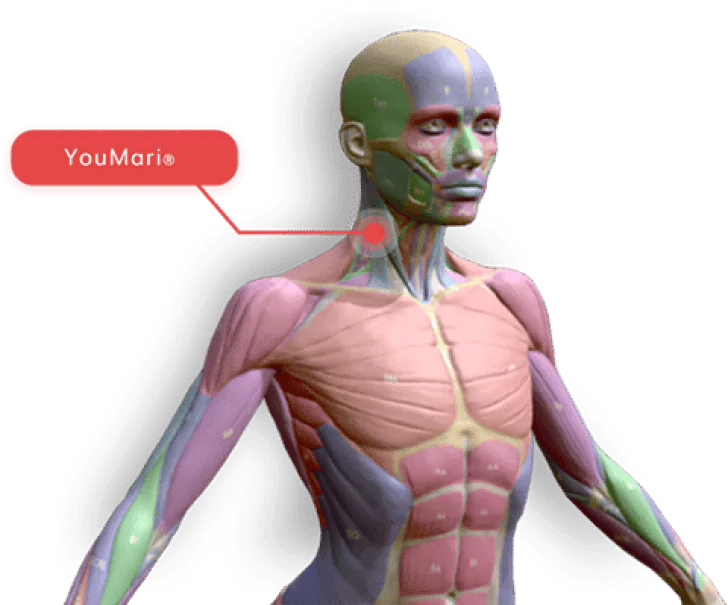Work alongside your current treatment plan with advanced therapies that reduce oxidative stress, support immune function, and create a more permissive ecosystem for healing—delivered in our clinics, at home, or onsite.
Cancers and chronic diseases, such as diabetes, cardiovascular disease, and autoimmune disorders, are conditions that often arise from systemic inflammation, oxidative stress, and metabolic dysfunction.
Cancer: Characterized by the uncontrolled growth of abnormal cells that can invade healthy tissues.
Chronic Diseases: Long-lasting conditions that develop over time due to factors such as genetics, lifestyle, and environmental triggers.
Effective treatment requires not only addressing symptoms but also creating an internal environment that supports cellular healing and complements existing therapies.


We take an integrative approach to treating cancers and chronic diseases, working alongside your existing medical treatments to boost their effectiveness. By leveraging cutting-edge regenerative therapies, we focus on creating an internal environment that supports immune function, reduces inflammation, and optimizes metabolic health.
Our metabolic approach uses genetic insights to starve unhealthy cells while promoting autophagy, allowing healthy cells to eliminate diseased ones. We also design personalized lifestyle strategies based on DNA, gut health, and biochemistry to enhance overall treatment outcomes and quality of life

Experience hands-on care and advanced regenerative therapies in a relaxing, state-of-the-art environment.
Continue your healing journey with easy-to-use devices designed for at-home therapy.
Bring regenerative medicine to your workplace, improving employee health and productivity.
Our Regenerative Therapies our Not the Alternative, they are the
BEST CHOICE
We collaborate with your specialists to provide integrative medical therapies designed to starve cancers and bolster your immune system, following approaches that are the standard of care in Germany and Japan where their success rate for cancer survival and quality of life is much higher. For chronic diseases, we leverage your genetic information to tailor treatments, combining pharmaceuticals with targeted therapies. This personalized approach is informed by your health history, goals, and lifestyle, ensuring a comprehensive and effective treatment strategy that addresses your unique needs.

We will review your health history, symptoms, and current treatments to help determine the severity of your condition. We may recommend additional testing and analysis to get a full picture of potential therapies personalized to you.
We will present a treatment plan that includes only those therapies proven to be effective in treating your condition. This may include comprehensive lab testing and AI analysis to find the potential causes of the severity of your symptoms. Additional options include sleeps studies, DNA nutrigenomics analysis for lifestyle design, food sensitivities, pharmacogenetics testing to determine if medication are effective based on your genetics, and other therapies to resolve issues causing inflammation, pain and other symptoms. You will be provided with treatment plan options and timelines with transparent out-of-pocket costs to you.


Integrative therapy for starving cancer involves using complementary approaches alongside conventional treatments to target cancer cells more effectively. One prominent method is dietary intervention, which focuses on depriving cancer cells of essential nutrients. For example, studies have shown that ketogenic diets, which are low in carbohydrates and high in fats, may help starve certain cancer cells by reducing their glucose supply. Research published in Cancer Research (2013) demonstrated that a ketogenic diet could inhibit tumor growth in animal models by lowering blood glucose levels and reducing tumor proliferation. Additionally, a study in The American Journal of Clinical Nutrition (2018) found that intermittent fasting could enhance the effectiveness of chemotherapy and reduce side effects by affecting cellular metabolism and promoting cancer cell apoptosis. These studies underscore the potential of integrative therapies to complement traditional cancer treatments by targeting metabolic pathways crucial to cancer cell survival.
[Cancer Research Study]
[AJCN Study]

Integrative therapy aimed at bolstering the immune system to fight cancer involves various complementary approaches that enhance the body’s natural defense mechanisms. One effective method is the use of specific nutritional supplements, such as vitamin D and omega-3 fatty acids. Research published in Clinical Cancer Research (2015) found that vitamin D supplementation could enhance immune function and improve clinical outcomes in cancer patients by modulating inflammation and boosting the immune response. Similarly, a meta-analysis in JAMA Oncology (2019) showed that omega-3 fatty acids, found in fish oil, might improve immune response and reduce inflammation in cancer patients. Additionally, mind-body practices like meditation and yoga have been shown to positively affect immune function. A study in Cancer (2014) demonstrated that mindfulness-based stress reduction could improve immune function and overall well-being in cancer patients. These integrative therapies can work synergistically with conventional treatments to strengthen the immune system and support cancer recovery.
[Clinical Cancer Research Study]
[JAMA Oncology Study]
[Cancer Study]

Red light therapy, also known as low-level laser therapy (LLLT) or photobiomodulation, has been explored for its potential in supporting cancer treatment. This therapy uses specific wavelengths of light to penetrate tissues and stimulate cellular processes. Evidence suggests that red light therapy might help improve outcomes for cancer patients by reducing inflammation, promoting healing, and enhancing the effectiveness of conventional treatments.
One study published in Photomedicine and Laser Surgery (2014) examined the effects of red light therapy on cancer cell growth and found that it could inhibit the proliferation of certain cancer cell lines, suggesting a potential role in reducing tumor growth.
[Photomedicine and Laser Surgery Study]
Additionally, research in The Journal of Clinical Oncology (2019) indicated that red light therapy could alleviate side effects of cancer treatments, such as oral mucositis and skin damage, thereby improving patients’ quality of life and overall treatment tolerance.
[JCO Study]
These studies highlight red light therapy’s potential as an adjunct to conventional cancer treatments, particularly in managing side effects and supporting overall patient health.

Research in Nature Reviews Clinical Oncology (2020) highlighted the role of pharmacogenetics in optimizing cancer treatment. The study focused on how genetic variations impact the metabolism and effectiveness of chemotherapeutic agents, underscoring the importance of personalized medication strategies to improve cancer treatment outcomes. Nature Reviews Clinical Oncology Study.
Nutrigenomics is a field that explores the relationship between diet, genetics, and chronic disease, aiming to tailor lifestyle interventions based on an individual’s genetic profile. This personalized approach can help optimize health outcomes by aligning dietary and lifestyle choices with genetic predispositions.
Study: A study published in The American Journal of Clinical Nutrition (2015) investigated how genetic variations affect responses to dietary fats. Researchers found that individuals with specific genetic markers responded differently to omega-3 fatty acid supplementation, suggesting that personalized dietary recommendations based on genetic information could improve cardiovascular health outcomes.
[AJCN Study]
Study: Research in Diabetes Care (2018) examined how genetic variants related to insulin sensitivity and glucose metabolism could guide dietary interventions for type 2 diabetes. The study highlighted that personalized nutrition strategies based on genetic information could enhance glycemic control and reduce the risk of diabetes-related complications.
[Diabetes Care Study]
Study: A meta-analysis in Nature Reviews Genetics (2016) reviewed how genetic variations influence individual responses to dietary changes and their impact on obesity. It concluded that nutrigenomic approaches could help design personalized weight management plans by considering genetic predispositions to obesity and metabolic disorders.
[Nature Reviews Genetics Study]
These studies demonstrate the potential of nutrigenomics to inform lifestyle changes and dietary recommendations based on genetic information, thereby enhancing the management of chronic diseases and promoting better health outcomes through personalized interventions.
Pharmacogenetics, the study of how genetic variations affect an individual’s response to medications, is increasingly used to tailor treatments for chronic diseases based on genetic profiles. This approach can optimize drug efficacy and minimize adverse effects, enhancing overall treatment outcomes.
Study: A study published in The New England Journal of Medicine (2015) investigated how genetic variations in the CYP2C19 gene influence responses to antihypertensive drugs. The research found that genetic testing could guide personalized treatment plans for hypertension, improving medication efficacy and reducing side effects.
[NEJM Study]
Study: Research in Diabetes Care (2017) explored the impact of genetic variations on responses to diabetes medications, such as metformin and sulfonylureas. The study demonstrated that pharmacogenetic testing could predict which patients are most likely to benefit from specific diabetes drugs, leading to more effective and personalized management of type 2 diabetes.
[Diabetes Care Study]
Study: A study published in JAMA Psychiatry (2018) examined how genetic variants in the CYP450 enzyme system affect the metabolism of antidepressants. The findings suggested that pharmacogenetic testing could guide the selection and dosing of antidepressants, improving treatment outcomes and reducing adverse effects for patients with depression.
[JAMA Psychiatry Study]
Study: Research in Nature Reviews Clinical Oncology (2020) highlighted the role of pharmacogenetics in optimizing cancer treatment. The study focused on how genetic variations impact the metabolism and effectiveness of chemotherapeutic agents, underscoring the importance of personalized medication strategies to improve cancer treatment outcomes.
[Nature Reviews Clinical Oncology Study]
These studies illustrate the benefits of pharmacogenetics in personalizing treatment plans for chronic diseases. By integrating genetic information, healthcare providers can optimize medication choices and dosages, leading to more effective and safer treatment strategies tailored to individual genetic profiles.
Red light therapy, also known as low-level laser therapy (LLLT) or photobiomodulation, is increasingly being explored for its potential benefits in managing chronic diseases. This therapy uses specific wavelengths of light to stimulate cellular processes, reduce inflammation, and promote healing. Here are some studies that highlight its effectiveness in various chronic conditions:
Study: A systematic review in Pain Medicine (2017) evaluated the efficacy of red light therapy in managing chronic pain conditions such as arthritis and musculoskeletal pain. The review concluded that red light therapy could reduce pain and inflammation, improve function, and enhance the quality of life for patients with chronic pain.
[Pain Medicine Study]
Study: Research published in Osteoarthritis and Cartilage (2015) assessed the effects of red light therapy on knee osteoarthritis. The study found significant improvements in pain reduction and functional outcomes for patients receiving red light therapy, suggesting its potential as an adjunctive treatment for osteoarthritis.
[Osteoarthritis and Cartilage Study]
Study: A review in Photomedicine and Laser Surgery (2016) examined the role of red light therapy in promoting wound healing and tissue repair in chronic wounds, such as diabetic foot ulcers. The review highlighted that red light therapy accelerates healing by enhancing cellular repair processes and reducing inflammation.
[Photomedicine and Laser Surgery Study]
Study: An article in Chronic Illness (2019) explored the use of red light therapy for managing chronic fatigue syndrome (CFS). The study reported that red light therapy could improve energy levels and reduce fatigue in CFS patients, potentially offering a non-pharmacological treatment option for managing symptoms.
[Chronic Illness Study]
Study: Research published in Frontiers in Neuroscience (2020) investigated the effects of red light therapy on neurodegenerative diseases such as Alzheimer’s and Parkinson’s disease. The study found that red light therapy could help mitigate neuroinflammation and support neuronal health, suggesting its potential as a therapeutic tool for neurodegenerative conditions.
[Frontiers in Neuroscience Study]
These studies indicate that red light therapy holds promise as an adjunctive treatment for various chronic diseases, offering benefits such as reduced pain, improved healing, and enhanced quality of life.
Integrative and regenerative therapies are increasingly used alongside conventional treatments to enhance outcomes for cancers and chronic diseases. These are considered adjunctive therapies which many times improve a patient’s health outcome as well as improve their quality of life.
Integrative therapies combine conventional medical treatments with complementary approaches, such as nutrition, exercise, and mind-body practices. They aim to enhance overall health, manage side effects, and improve quality of life while working alongside standard medical treatments.
Nutrition plays a crucial role in supporting overall health, boosting the immune system, and managing side effects of cancer treatments. Integrative approaches may include personalized dietary plans based on individual needs and genetic profiles to improve treatment outcomes and support recovery.
Medical massage may help alleviate cancer-related symptoms such as pain, nausea, and fatigue. It is often used as a complementary therapy to improve quality of life and support the efficacy of conventional treatments.
Mind-body practices such as mindfulness meditation, yoga, and tai chi are recommended to help manage stress, anxiety, and pain. These practices can improve emotional well-being and potentially enhance the effectiveness of conventional cancer treatments.
Some herbal supplements, like ginger and turmeric, have shown potential in reducing inflammation and supporting overall health. However, it’s essential to use them under medical supervision to avoid interactions with conventional treatments. Like all treatments we recommend consulting with your healthcare provider before taking supplements.
Regenerative therapies aim to repair or replace damaged tissues and organs through methods like stem cell therapy, tissue engineering, and gene therapy. Unlike conventional treatments that often focus on symptom management, regenerative therapies target the root cause by promoting natural healing processes.
It’s important for patients to discuss potential risks with their healthcare providers and ensure that treatments are administered by qualified professionals. In general, there are special considerations for pregnant women, cancer patients, and children.
Regenerative therapies can complement conventional treatments by enhancing healing and recovery.
Our integrative therapies reduce inflammation, boost immune function, and optimize metabolic health, creating a supportive environment that enhances the effectiveness of your existing treatments.
A metabolic approach identifies the genetic profile of unhealthy cells to starve them of nutrients, promoting autophagy. This process allows healthy cells to eliminate damaged or diseased cells naturally.
PBM reduces oxidative stress and systemic inflammation, improves cellular energy production (ATP), and supports overall healing, making it an excellent adjunctive therapy.
Hydrogen inhalation provides systemic antioxidant benefits, neutralizing free radicals and reducing inflammation, which are critical for improving immune function and creating a healthier internal environment.
Our therapies are integrative, meaning they work alongside your current medical treatments to enhance their effectiveness. We do not replace traditional treatments but instead make them more impactful.
DNA and gut health testing provide insights into genetic predispositions, nutrient absorption, and overall metabolism, allowing us to create highly personalized strategies to improve treatment outcomes.
Yes, all our therapies are non-invasive, clinically validated, and designed to complement existing treatments safely.
By reducing inflammation, supporting immune function, and improving metabolic health, our therapies can slow disease progression and promote overall resilience.
Our therapies are ideal for individuals undergoing cancer treatment, managing chronic diseases, or seeking to optimize their health and treatment outcomes.
Book a consultation with our team to discuss your current treatment plan, health goals, and personalized options for enhancing your recovery and overall wellness.
See Plans & Pricing

Connect with us over our social platforms & find special deals for you!
© Copyright 2025. All rights reserved.